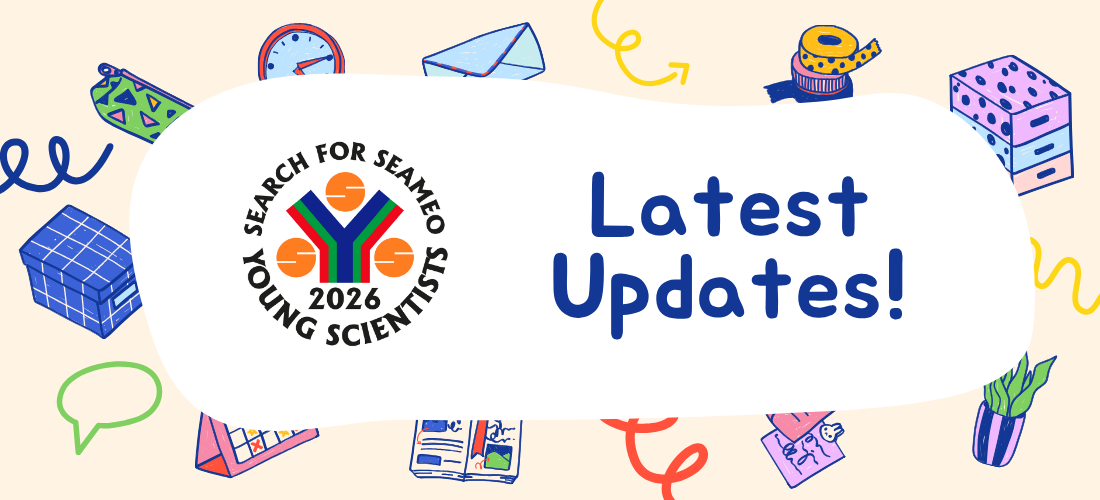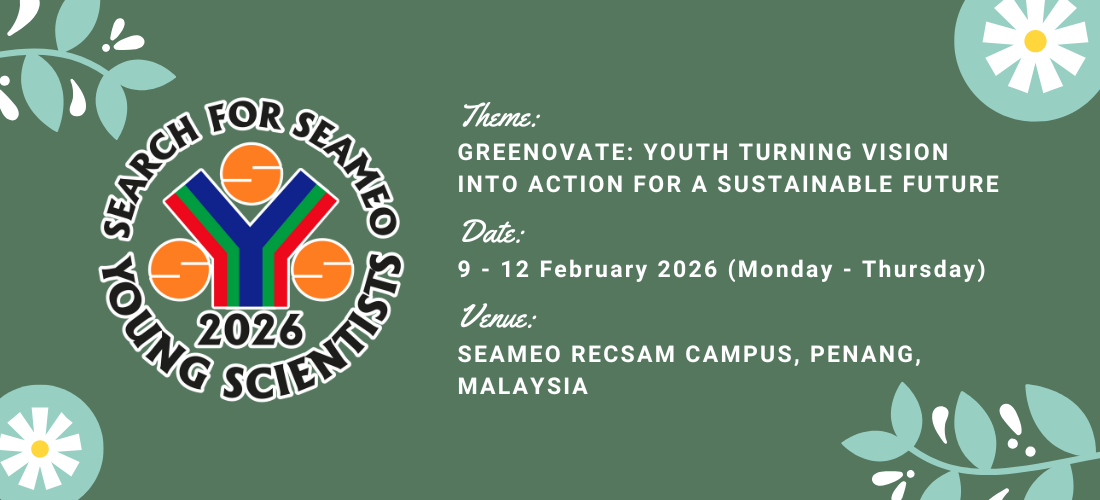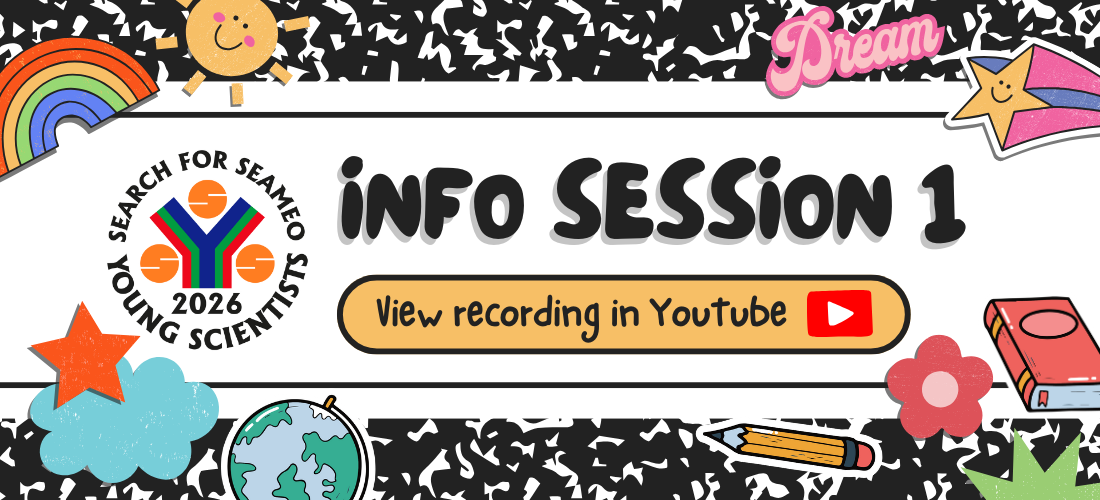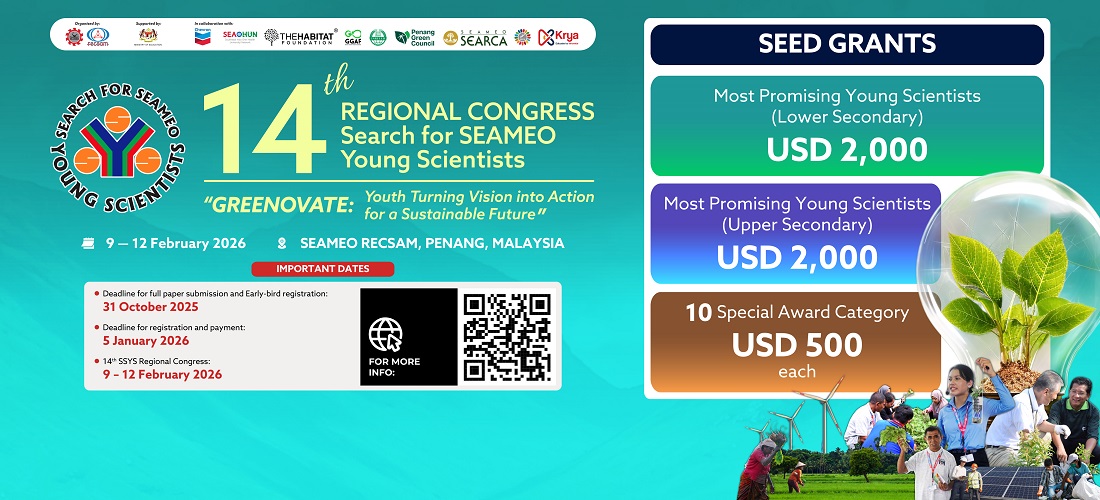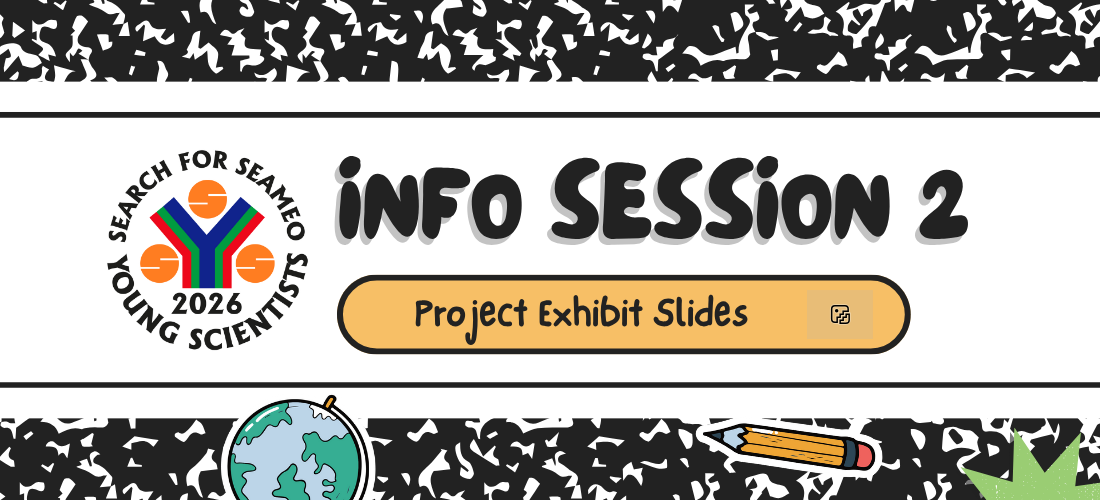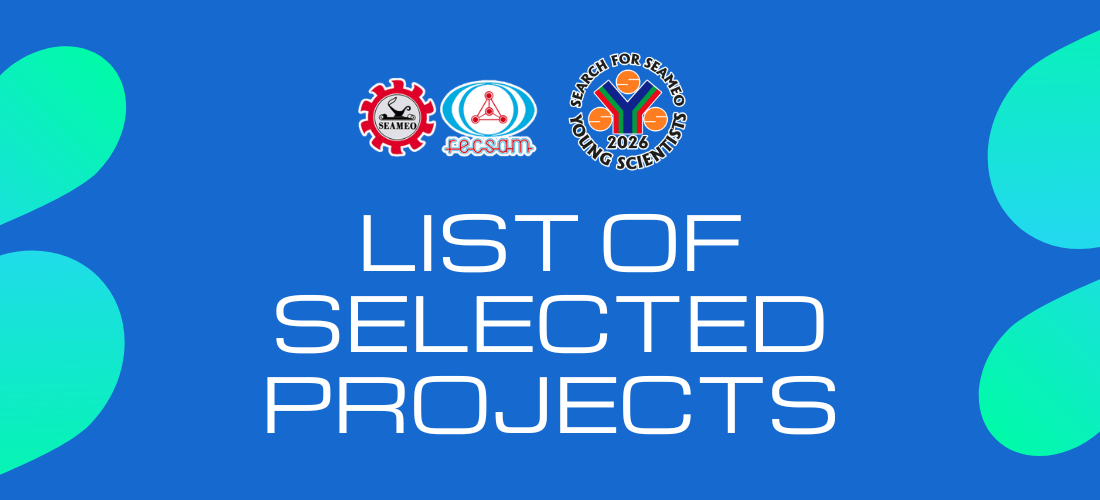SEAMEO RECSAM is a renowned center for Science and Mathematics education, committed to fostering academic excellence through teacher education and capacity-building programs. At its core, SEAMEO RECSAM values education as a fundamental pillar of sustainability. By empowering educators and students alike, it seeks to drive innovation and critical thinking in STEM fields, ensuring that learning translates into real-world solutions. Recognising the youth as key agents of change, the institution underscores their pivotal role in shaping a sustainable future.
The Search for SEAMEO Young Scientists (SSYS) congress at SEAMEO RECSAM embodies this vision by providing a dynamic platform for young minds to explore scientific and technological advancements while addressing urgent global challenges. Through collaborative learning, interdisciplinary teamwork, and the application of STEM principles, SSYS equips young learners with the skills necessary to develop sustainable solutions that benefit society and the environment.
The 14th SSYS 2026, themed "Greenovate: Youth Turning Vision into Action for a Sustainable Future", aims to inspire and empower youth to drive sustainability by transforming their vision into actionable solutions that promote environmental stewardship, climate resilience, and green innovation. It also recognises the potential of emerging technologies such as Artificial Intelligence (AI) to accelerate innovative solutions for sustainability challenges.
The 14th SSYS 2026 aligns with Malaysia’s ASEAN Chairmanship 2025, which embraces the theme “Inclusivity and Sustainability” (Ministry of Foreign Affairs, Malaysia, 2024). As Malaysia leads ASEAN in fostering regional peace, stability, and prosperity, this congress will serve as a platform for youth to actively engage in sustainable development. The event will emphasise the critical role of young scientists in tackling environmental issues while ensuring equitable opportunities for all communities across the region.
In addition, 14th SSYS 2026 aligns with Penang2030, a vision introduced by the Penang State Government to create a “Family-Focused, Green, and Smart State that Inspires the Nation.” This congress aligns with Penang2030’s core themes of enhancing liveability, driving sustainability, and fostering a green economy, thereby reinforcing the commitment to advancing green education and sustainability-driven entrepreneurship among youth.
The 14th SSYS broadens its scope by integrating Green Education, Environmental Awareness, Sustainability, Climate Change, and Entrepreneurial Mindsets. The congress aligns with global sustainability goals, emphasising youth-led innovations that contribute to a more resilient and eco-conscious future.

